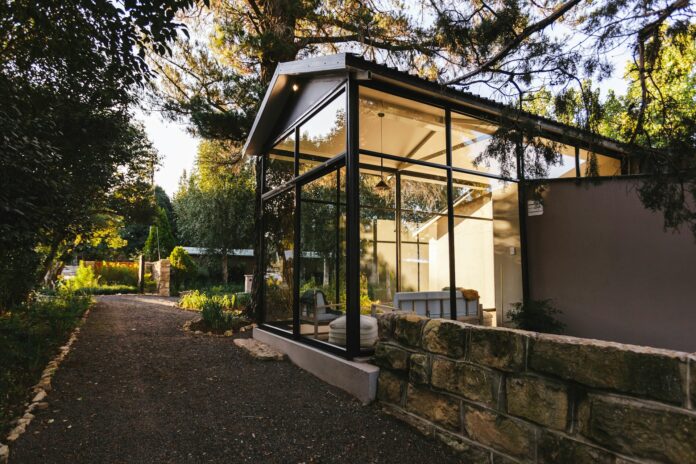As the winter chill sets in, the boiler becomes an indispensable ally, providing warmth and hot water to homes. However, the increased demand during the colder months often leads to a variety of boiler issues. Understanding these common faults and knowing how to prevent them is essential for maintaining a cosy and comfortable home. With that in mind, here are 7 of the most common boiler faults and the best ways to fix them.
The Most Common Boiler Problems
Problem #1: A Leaking Boiler
One of the most prevalent issues to affect domestic boilers is leakage. Causes range from a broken pump seal or pressure relief valve, often due to high boiler pressure, to corrosion of pipes or faulty components.
Leakage should never be ignored, as it can cause significant water damage and potentially ruin the boiler’s electrical components, leading to costly repairs or even full replacements, which can amount to anything from £1500 to upwards of £5000. Prompt action and consultation advised upon suspicion of a leak.
To address a leak, first, identify the source. If it’s a seal or valve, replacing these parts can often rectify the issue. For corrosion-related leaks, affected pipes may need replacing. In all cases, it’s prudent to engage a certified gas safety engineer to ensure repairs are conducted safely and effectively.
Problem #2: Absence Of Heat & Hot Water
The absence of heating and hot water is a common and distressing problem, affecting 10%–12% of boilers annually. Potential causes include:
- Disconnection from the fuel supply; for gas boilers, verify with the gas supplier, and for oil, ensure there is sufficient fuel.
- A frozen condensate pipe, which can be remedied by pouring warm water over it to thaw the ice.
- Low boiler pressure, possibly due to leaks or recent radiator bleeding. Re-pressurising the boiler using an external filling loop is necessary, aiming for a gauge reading between 1-2 bars, ideally at 1.5 bars.
- A malfunctioning thermostat; ensure it is operational, clean, and set to a temperature above the room’s current temperature.

Problem #3: Strange Noises From The Boiler
Identifying and addressing the type of noise can help resolve issues:
- Banging noises may indicate loose components or pipework, debris in the heat exchanger, or a faulty central heating pump. Tighten any loose fittings to address banging noises.
- Whistling sounds often point to sludge accumulation on the heat exchanger. Flush the system to remove sludge causing whistling sounds.
- Clanking could also suggest loose pipework or an obstructed boiler fan. This may require securing pipework or clearing obstructions from the fan.
- A loud humming noise might signal a loose component. Check for loose parts and secure them.
- Buzzing noises could be electrical issues, which should be inspected by a professional to avoid safety risks..
- Gurgling suggests trapped air, which can be resolved by bleeding the radiators.
Problem #4: The Boiler Fails To Ignite
If the boiler does not turn on, first check for a tripped switch or blown fuse. If these are not the culprits, the issue may lie with the boiler’s PCB (its Printed Circuit Board, sometimes referred to as the ‘brains of the boiler’).
Some PCB problems can be resolved by consulting the manufacturer’s manual for error codes or memory faults, but others will necessitate a certified gas safety engineer’s expertise.

Problem #5: The Boiler Repeatedly Switches Off
Frequent shutdowns of the boiler can be due to thermostat malfunctions, insufficient water flow, system airlocks, or sludge and debris buildup.
This can be a complex issue requiring a multi-faceted approach:
- Verify the thermostat’s accuracy and replace it if faulty.
- Ensure there’s adequate water flow by checking for closed valves or leaks.
- Release airlocks by bleeding the system.
- Remove sludge or debris through system flushing.
That said, this isn’t something to be tackled by the layman. A gas safety engineer should be contacted to diagnose and rectify the issue.
Problem #6: Cold Radiators
Cold radiators, particularly during winter, can impede the distribution of heat. If radiators are cold at the bottom, it suggests sludge and debris accumulation, requiring professional cleaning. If the top is cold, it indicates an airlock, which can be fixed by bleeding the radiators, a task that can be performed without professional help.
- For cold bottoms, a power flush of the system may be needed to clear out sludge.
- Airlocks at the top can be released by using a radiator key to bleed the radiator until water, not air, comes out.


Problem #7: Pilot Light Issues
A pilot light that frequently goes out or refuses to stay lit can be a sign of a faulty thermocouple, an obstruction in the pilot light orifice, or a draught blowing the light out. It’s essential to ensure that the pilot light area is clean and that there are no draughts. If the problem persists, professional assistance is recommended.
A troublesome pilot light can be identified via a few cursory checks:
- Check the thermocouple and replace it if it’s faulty.
- Clean the pilot light orifice to remove any blockages.
- Ensure there are no draughts; if the pilot light is continually being blown out, consider installing a draught excluder.
Preventive Measures
To mitigate these issues, consider the following steps:
- Keep the boiler running at a low temperature during extreme cold to prevent freezing,
- Utilise a timer system to manage heating schedules effectively.
- Insulate external pipes, including the condensate pipe, to prevent freezing, or relocate them indoors where possible.
- Maintain regular boiler servicing to identify and address potential future issues.
- Monitor the boiler’s temperature settings to avoid overloading and excessive energy consumption.
- Regularly inspect pipes for leaks and insulate where necessary to prevent severe damage.
- Ensure you have comprehensive boiler cover in place. Not only does this type of policy cover the cost of damage repair, including parts and labour, but it also includes annual boiler service. As a matter of fact, experts from 24|7 Home Rescue say on boiler cover & central heating insurance page, “If you prefer the peace of mind of knowing someone is on hand to assist you if a problem occurs, then choosing the right cover for your needs will provide this reassurance”.
The Bottom Line
Awareness of these common boiler problems and their underlying causes, coupled with proactive preventive measures, can significantly reduce the incidence of boiler issues. By taking these steps, one can enjoy a warm and trouble-free winter season. Brrrr…





